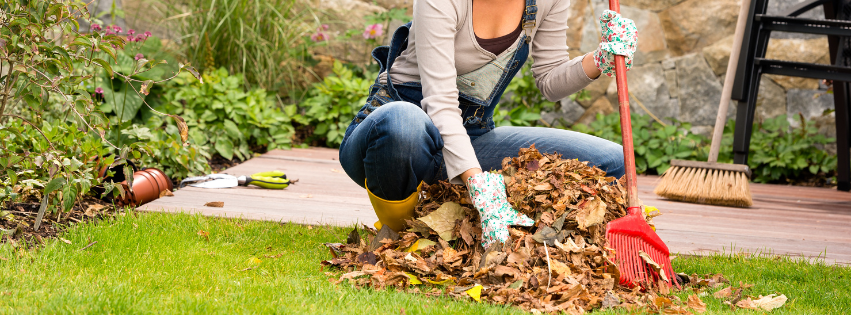|
July is here, and with it comes the irresistible call of the water! Whether you're diving into a refreshing pool, conquering waves at the beach, or gracefully gliding across a lake, swimming is a fantastic way to cool down and stay active. But did you know that even this seemingly effortless activity can benefit from a touch of ergonomics? Balance is Key: Ergonomics is all about creating harmony between your body and the environment. When swimming, proper technique ensures balanced muscle usage. Unequal strokes or kicking with more force on one side can lead to muscle imbalances and potential injuries. Balance is an easy way to incorporate ergonomics into everyday life. Unbalanced muscles can cause one muscle group to be overworked, this overuse can lead to muscle fatigue, soreness, and eventually pain. A skilled massage therapist at Living Touch Massage Therapy can assess your posture and identify any imbalances, creating a personalized treatment plan to address them.
Freestyle swimming often involves breathing to one side. While this is perfectly acceptable, it's important to be mindful of potential neck strain. Regularly switching the side you breathe on helps distribute the load evenly and prevents muscle tightness. Muscle imbalances can affect your posture as your body tries to compensate for the weakness on one side. This can lead to slouching, hunching, or other postural deviations that can cause pain in your back, neck, and shoulders. Additionally, a massage therapist can help loosen any tension in the neck and shoulders that may arise from repetitive swimming motions. Whether you're packing up for a day trip or a week-long beach vacation, consider ergonomics when choosing your beach essentials. Even when traveling to the beach, it’s easy to get caught up in hauling heavy essentials. Try a backpack-style beach bag to distribute the weight evenly across your shoulders. This will help prevent neck and shoulder strain compared to carrying a heavy tote bag on one arm. Invest in a cooler with wheels to avoid lugging a heavy cooler back and forth from the car. This will save your back and arms from unnecessary strain. Ditch the flimsy beach towels and try for a supportive beach mat that provides proper lumbar support. Look for beach chairs with adjustable backs to maintain good posture while soaking up the sun. If you're using an umbrella, adjust it to provide shade without forcing you to twist or strain your body to stay cool. Remember, even lounging can lead to aches and pains if your body isn't properly supported. Here at Living Touch Massage Therapy, we believe in prevention. By incorporating ergonomic practices into your swimming routine, you can minimize the risk of muscle imbalances and injuries. Early detection and treatment of muscle imbalances are crucial to prevent these potential problems. Additionally, scheduling regular massages can help maintain flexibility, improve range of motion, and decrease muscle soreness, keeping you swimming strong all summer long! Ready to Dive In? Whether you're a seasoned swimmer or just starting out, Living Touch Massage Therapy is here to help you make the most of your aquatic adventures. Our massage therapists can provide expert advice on maintaining proper form while swimming and address any muscle imbalances that may arise. So, pack your swimsuit, embrace the sunshine, and let Living Touch Massage Therapy help you have a healthy, pain-free summer! For many people, we travel to get a sense of adventure, to take in new experiences, and to create memories that last a lifetime. But let's be honest, the journey itself can sometimes leave you feeling stiff, sore, and less than thrilled, especially as our bodies start getting a little bit older. While reaching our destination as quickly as possible to enjoy ourselves is a top priority, neglecting ergonomics throughout the travel process can put a damper on the whole trip, and can strike without warning. Fortunately, at Living Touch Massage, we have a few tricks up our sleeves that can help prevent these aches and pains, and let you focus on the things that matter! Ergonomics: Your Secret Weapon for a Smooth Journey
Ergonomics is all about designing your environment to fit you, not the other way around. This becomes especially important when navigating the sometimes awkward realities of travel. By incorporating a few simple ergonomic hacks, you can transform your journey from a pain-inducing experience into the comfortable, stress-free adventure that you crave. An easy way to incorporate ergonomics is by upgrading your luggage. Ditch the traditional two-wheeled suitcase and get a 360-degree spinner. This allows you to move your luggage effortlessly, eliminating dragging a heavy bag behind you. If you’re debating between checking a bag or bringing a carry on, consider your back. If your trip involves heavy luggage, consider checking a bag instead of struggling with an overloaded carry-on. For shorter trips with lighter packing, a backpack is your best friend. The weight is evenly distributed across your shoulders, taking the pressure off your back and arms. Even packing a hoodie can take your comfort while traveling to the next level. Airplanes and airports can fluctuate in temperature. A hoodie provides an extra layer of warmth when you're feeling chilly, which can help prevent muscle tension that comes with shivering. A well-fitting hoodie with a hood can offer some light neck support, especially when you're slumped over in a seat trying to sleep. This can help maintain better spinal alignment and reduce neck and shoulder strain. If you're prone to headaches or migraines, the hood can be used to apply gentle pressure around the head, which some find helps alleviate pain. Traveling often involves planes, trains, and automobiles. Here at Living Touch Massage, we are here for your therapeutic needs, but we are also here for preventive advice. Maintaining good posture is essential, sitting up straight with your shoulders back and relaxed, and avoiding slouching. If you're driving, adjust your seat and steering wheel for optimal comfort. Avoid hunching over the wheel, and adjust the mirrors for proper visibility to minimize neck strain. Taking breaks while driving or flying and being able to stand up and move helps improve circulation and reduces stiffness. When traveling on a bus or train, choose a window seat if possible, so you can lean against the window for support. Get up and walk around the carriage whenever possible. Drinking plenty of water helps prevent dehydration, which can contribute to fatigue and muscle cramps. Travel Essentials for Ergonomic Comfort Once you're on the move, here are some travel must-haves to keep you feeling comfortable and supported:
Remember, It's All About the Journey By incorporating these ergonomic travel hacks, you can transform your journey into a comfortable and enjoyable experience. When returning home, Living Touch Massage will be able to assess your needs and concerns and offer therapeutic techniques. So relax, focus on the adventure ahead, and arrive at your destination feeling refreshed and ready to explore! At Living Touch Massage, we know the importance of a healthy routine. Jogging and power walking are fantastic ways to get your heart rate up and burn calories, but it's crucial to prioritize proper form to avoid injury. Here are some extended tips to keep your body aligned while you hit the pavement: Sole Support: Invest in the Right Shoes
Running and walking both put stress on your feet and ankles, which can travel up your legs and cause lower back pain. Fight back by wearing shoes specifically designed for your chosen activity. Don't skimp! Change your shoes regularly, typically every 300-500 miles for running shoes and every year for walking shoes. Consider having a separate pair specifically for your workouts. Proper footwear provides cushioning, arch support, and stability specific to the demands of jogging or power walking. Uneven Terrain? Be Mindful of the Grade When you're out jogging or power walking, pay attention to the incline of the road. It's easy to overlook, but even a slight crest can have consequences. As you walk or run on an uneven surface, one leg is often lower than the other. This can lead to imbalances in your hips, knees, and even your neck over time. To avoid these issues, prioritize flat paths whenever possible. If you must walk on an incline, try to alternate directions on your route so that each leg gets equal work on the incline and decline. Level Up Your Walk: Seek Flat Surfaces While nature trails might seem like a scenic alternative to sidewalks, they often come with uneven terrain. This can be a nice occasional change of pace, but for consistent exercise, it's generally better to stick to level surfaces like sidewalks or tracks. This will help you maintain proper form and reduce the risk of developing pain in your back, hips, and knees. Listen to Your Body: Warm Up, Cool Down, and Stretch Just like any workout, proper warm-up and cool-down are essential for jogging and power walking. Dynamic stretches like leg swings, arm circles, and lunges will prepare your muscles for movement and help prevent injuries. After your workout, dedicate time to static stretches that hold each pose for 20-30 seconds to improve flexibility and reduce muscle soreness. Form Matters: Maintain Proper Posture While you're out there, focus on maintaining good posture. Here's the key:
Don't underestimate the importance of staying hydrated! Drink plenty of water before, during, and after your workout. You may also want to consider a sports drink for longer walks or jogs, especially in hot weather. Additionally, fuel your body with a healthy snack beforehand and replenish your energy stores with a balanced meal afterward. Living Touch Massage: Here to Help You Keep Moving Whether you're a seasoned jogger or a power walking newbie, prioritizing proper form is key to preventing injuries. By following these tips and listening to your body, you can keep your walks and jogs enjoyable and pain-free. And if you do experience any discomfort, Living Touch Massage os here to help. We can provide targeted relief, identify areas of tightness that may be contributing to pain, and offer advice on how to prevent future issues. Let's keep you moving comfortably! The call of the yard beckons, promising fresh air and a sense of accomplishment. But before you dive into raking that mountain of leaves or shoveling the winter's wrath, remember: your body is not a bulldozer. Just like any physical activity, yard work demands respect for proper ergonomics, or those pesky aches and pains will be back faster than a runaway squirrel. Ditch the Static, Embrace the Flow:
Even with the best intentions, yard work can leave your muscles feeling like battle-weary soldiers. This is where massage therapy steps in, offering sweet relief:
Hitting the open road can be exhilarating, but for many, it's also a recipe for aches and pains. Poor driving posture and repetitive motions can create a symphony of discomfort, impacting everything from your shoulders to your ankles. But just like tuning up your car, you can tune up your driving experience with the magic touch of ergonomics. Behind the Wheel: Ergonomics in the Driver's Seat
While good ergonomics practices are your preventative oil change, sometimes the engine of your body needs a professional tune-up. Massage therapy can be your ergonomic ally, offering a range of benefits:
Remember, ergonomics isn't just for office chairs; it's for every aspect of your life, including behind the wheel. By incorporating these simple tips and considering the magic touch of massage therapy, you can transform your drives from discomfort zones to comfortable journeys, leaving you feeling refreshed and ready to enjoy every mile. We often associate ergonomics with clunky office chairs, workstations that don’t fit you, and fluorescent lights. But what if I told you the principles of designing for interaction and comfort extend far beyond your cubicle walls? Today, we're hitting the "undo" button on discomfort and exploring how ergonomics can revolutionize your everyday life, starting with the most familiar friend (or foe) – your computer. Posture Power: Taming the Back Beast
Remember that nagging lower back pain that flares up after an eternity scrolling through emails? It's often a case of postural surrender. Our spines crave neutrality, not the slouch-fest most computer workstations offer. So, let's reclaim our posture!
Staring at a glowing rectangle for hours isn't exactly natural, and our necks often bear the brunt of our digital devotion. But fear not, tech tamers!
Mousing around shouldn't leave you feeling like a contortionist. Here's how to keep your arms and hands happy:
The good news is, ergonomic principles work wonders beyond the digital realm. From cooking to cleaning, here are some everyday tips:
While incorporating ergonomic principles into your daily life is key, let's face it, sometimes the tension builds up despite our best efforts. That's where massage therapy comes in, playing a crucial role in your ergonomic journey. Here's how:
The New Year is here! And with it comes the promise of reinvention. For many, that reinvention involves conquering fitness goals, often with images of intense bootcamps and marathon training flashing through our minds. But hold on! Before we dive headfirst into extreme exercise, let's consider a gentler, more sustainable approach – one that embraces slow starts, celebrates consistency, and acknowledges the changing physiology of our bodies as we age. Slow and Steady Wins the Race: Forget the crash-and-burn mentality. Ditch the pressure of instant results and embrace the wisdom of starting slow. This, especially as we get older, is crucial to prevent injuries and build a sustainable exercise routine. Begin with manageable activities you enjoy, like brisk walks, gentle yoga, or swimming. Listen to your body, respect its limitations, and gradually increase intensity and duration. Remember, a slow burn leads to a lasting fire, not a fleeting flicker. Consistency is Key, Not Intensity: It's not about how hard you push yourself one day, but about showing up for yourself consistently. Aim for shorter, regular workouts that fit seamlessly into your schedule. A 30-minute walk every day is far more effective than a single grueling session followed by weeks of inactivity. Building a consistent routine, even if it's small, forms the foundation for long-term success and avoids the discouraging yo-yo of extreme exertion. The Wise Body: Embracing Change: The harsh reality is that as we age, our metabolism slows down, muscle mass decreases, and our bones may become more brittle. This doesn't mean exercise becomes out of reach, it simply means adapting our approach! Focus on low-impact activities that strengthen muscles and bones, like strength training with lighter weights or bodyweight exercises. Balance and flexibility become increasingly important, so incorporate yoga, Pilates, or Tai Chi into your routine. Remember, exercise isn't a battle against age, it's a conversation you have with your changing body, one filled with respect and understanding. The Magic of Movement: Beyond the physical benefits, exercise reduces stress and anxiety, boosts mood, and improves cognitive function. As we age, these benefits become even more crucial. Regular physical activity can help combat age-related cognitive decline and keep our minds sharp and vibrant. The endorphin rush after a workout is a natural mood booster, and the sense of accomplishment can work wonders for our self-esteem. Fueling the Journey: Remember, exercise is just one piece of the puzzle. Nourishing your body with healthy foods becomes even more important as we age. Choose whole grains, lean protein, colorful fruits, and vegetables to provide your body with the nutrients it needs to thrive. Stay hydrated with water and limit sugary drinks. This fuels your workouts, aids recovery, and supports overall health. Taking Care: Massage can also be an integral part of your 2024 fitness journey. Perhaps aches and pains are part of why you haven’t taken any exercise in recent years. Or your new found love of exercise has you aching in places that you didn’t know could ache! Whatever your situation, therapeutic massage can alleviate those pains, and keep your body in proper working order. Listen to the Whisper, Not the Roar: So, this New Year, let's ditch the pressure cooker and embrace the simmering pot. Start slow, be consistent, listen to your body, and celebrate the joy of movement in all its forms. Remember, age is just a number, and our bodies are capable of amazing things. Let's make exercise a conversation, not a competition, and watch as our confidence grows, our minds sharpen, and our spirits soar on this slow-burn journey to a healthier, happier you. What to look forward to in 2024 from our blog:
In 2024, we're taking back control of our posture and productivity with a year-long journey into the world of everyday ergonomics. Are you tired of aching backs, sore necks, and that nagging feeling your computer chair is causing it all? Check back monthly for a year of tips, tricks, and hacks to transform your home, office, and even your grocery run into ergonomic perfection! If you are a working person in 2023, you know that productivity is king in many facets of life. Your boss expects increases in productivity, and often we project high productivity within our personal lives when it comes to maintaining our social life, homes, families, etc. With all of the demands of everyday life, a person can begin to feel overwhelmed, and burnout can occure. The solution to this is very simple, but for many, it doesn’t seem possible. That solution is rest. While the question of productivity vs rest came to light during the madness of 2020, it has been something bubbling up for a couple decades now. It’s almost become a question of “does taking time to rest make you a lazy person?” Our answer is no. You are a living breathing entity. Our bodies are not made to be worked to the bone day in and day out. It’s essential for not only our physical health, but our mental health, to be able to sit back and rest. Rest your body. Rest your mind. You are not a robot.  Why has rest become seen as a sign of weakness or laziness? We live in a productivity obsessed culture. Taking breaks can make one feel lazy or immoral because that is valuable time that we could be dedicating to output. In fact, most people directly link their output or productivity to their worth as a person. If you think about a day where you have nailed a presentation, closed a big deal, or made a really good proposal, you feel like you’re on top of the world. You have that sense that you’re a person of value, and worthy of your keep. On the other hand, days when you feel sluggish, your output may not be as high, and you can start to wonder why your boss keeps you around or that you’re just not good at whatever it is you do. So you end up pushing through those days to reinforce that you are valuable. This can become a toxic cycle if gone unchecked, and can lead to a decline, not of quantity, but the quality of your work. Your brain is a muscle
If you’ve ever been to the gym, you know that between each workout, and even between each set within a workout, you need to plan time to rest that targeted muscle group. Biologically, it is essential to get the results you want. If you don’t take these breaks, your muscles deplete and you can’t eek out another rep. Your brain is no different. When you mentally extend yourself, your brain begins to slow down, and doesn’t make connections as easily as when it is “working fresh”. At this point, your work or your relationships begin to suffer. Just because you're producing, doesn’t mean you’re fully present, and it doesn’t mean what you’re producing is at a standard that is worthwhile. Rest is essential to your brain so it can function properly. It’s time to reframe the need for rest. It is not taking away productivity. It is enhancing your productivity! Whether your version of rest is a nap, a walk, taking a bath, reading a book or our personal favorite, Getting a massage; they are all in service to improved health, creativity and productivity. After all, even God took a day to rest! As the leaves will soon begin to change and we enter a new season, it is a great time to sit back and reflect on where we are in life. If the summer I’ve experienced is any indication of positive changes, my reflections will be amazing.
For those of you who haven’t met Dave yet, allow me to gush about my new husband just a little bit! As I mentioned, he has been working for Sanford Medical for 22 years, currently in the Sanford Hospital Cardiac Care Unit. In addition to his full-time position, he is attending Northwest Technical College to earn his diploma in HVAC/plumbing . Quite active, Dave enjoys all sorts of outdoor activities: hunting, fishing, hiking, kayaking, skiing, biking. He truly has a zest for life that is just contagious! We laugh a LOT when we’re together, and it’s been a joy to find a kindred spirit where we both really enjoy each other’s company, a very important building block to a successful marriage!
Looking towards the future, we continue to grow and not just by the size of our family! As I mentioned, Dave is going to school for HVAC/plumbing, but I have also been furthering my own education! I have always been a lifelong learner, and value education and the positive changes it can bring. I have been pursuing a degree in Biomedical Engineering. Don’t worry, this does not mean I am moving on from Living Touch Massage! The knowledge and experience I have gained over the years as a bodyworker has inspired me to find additional avenues to help people. As I merge into these new stages of life, my passion to work with people and their wellness will continue to be my focus and delight. Massage will always be part of my inspiration and a core value. As we grow and adjust to the changes throughout life, for me, massage will always be a part of who I am.
The way you set up your morning is more important than you may realize. The entire tone of your day can be established within the first few moments of when your eyes open! If you’re anything like us, you strive to have the best day ever every single day! While you may not be able to achieve this every day consistently, there are some things you can do to set yourself up for success that are not only painless, but VERY easy! Hydrate! The very first thing that everybody should be doing when they wake up is to drink some water and get your body hydrated. Our body is our vessel through life, and it needs to be maintained with the same care (or better care) than your car. You wouldn’t let your car run with no oil, would you? The same principle applies to your body. Take care of it, so it can continue to take care of you!
Let in the sunshine! In those first few minutes of being awake, most people these days immediately grab their phone and start scrolling. That’s just the world we live in these days. However, this could be impeding on your entire day! Social media, while it has many advantages, comes with a fair amount of disadvantages, which can lead to a feeling of anxiousness for many people. Instead, while you’re drinking your water, throw open your shades and let the sunlight in! Getting exposed to natural light is the perfect way to boost your mood, and start your day off on the right foot. Especially in Minnesota, where our winters can be long and dark, we need to take full advantage of the days when the sun is up before we are! Make your bed! Chaos leads to more chaos. Not to say that an unmade bed is the worst thing, but creating order first thing in the morning can spark that same sense of order throughout the day. When everything is in order, you feel a sense of accomplishment and control, which leads to feelings of happiness and fulfillment. Plus it’s always nice to crawl into a made bed at the end of the day. So don’t look at making your bed as a chore, think of it as the start to the many things you’ll accomplish throughout the day! Drink Greens BEFORE caffeine! Alright, we get it. This one is a hard sell. Caffeine and coffee is REALLY what makes the world go round these days. We’re not saying to forego your morning cup of Joe, but we ARE saying that green drink can help your body run optimally for the day (in addition to the water we’re already asking you to drink). It’s no surprise that right now, the average American is not eating enough vegetables. This can be for various reasons, but the bottom line is that these nutrients are SO important. They are loaded with antioxidants which will detoxify your body. They also boost your body’s immunity, fighting disease and preventing illness. You’re also getting your probiotics, which are good for gut health and liver function. These drinks can be made in a blender or food processor, and typically contain broccoli, spinach, kale, and celery. Alternatively, if you don’t have the time to be cutting and preparing vegetables in the morning, you can opt for a green drink powder mixed with water! Now you don’t necessarily need to be taking green drinks everyday, especially if you eat vegetables on a regular basis, but a few times a week is better than nothing! Journaling 5-10 minutes! Journaling is hard for a lot of people, especially if your mind is wired for it or used to the practice. But it can really get you into the right headspace for the day, and the beauty of it is, you can write whatever you want! Maybe it’s a list of what you want to accomplish for the day. It could be reflections of what you accomplished the previous day. Daily affirmations, or writing down what you're feeling grateful for are also totally fine! It’s really just a tool to “prime the pump” for your brain to start firing on all cylinders! Just a few little scribbles, or a lot of big scribbles depending on the day! Putting it all together. We know that many people are already thinking to themselves, “I’m already pressed for time, how can I add 5 new things to my morning routine?” Well, start small. Then gradually add to it! You’ll find that a lot of these things can be done at the same time, so in total, you may be adding a mere 10 minutes to your morning. You can easily sip on your water while making your bed, and you might as well throw open those windows on your way to the kitchen for that water. That’s 3 steps in 1 right there! In the summer, we HIGHLY recommend taking your green drink and your journal out on the porch, and knocking those two tasks out at the same time too WITH the added bonus of a little fresh air! It just feels so much more pleasant than rushing your way out the door in the morning. It’s just a matter of building that routine. So give it a try! The only thing you have to lose is a bad day! |
Categories
All
Archives
June 2024
|
Massage News - Articles of Interest
|
|
Recent Testimonials
"After a car accident a few years ago I have had problems with my shoulder. Rita helped me with the pain when doctors couldn't."
- Jo A. "I have suffered from chronic headaches and several back injuries for years. Regular massage has helped me to increase my flexibility and reduce muscular tension."
- Sheila P. |
About Us
We are a family-owned and operated company, serving the Bemidji area since 2004. Rita Scholl Bergstrom has over 25 years' experience as a massage and bodywork practitioner. |
2024 Copyright © Living Touch Massage. All Rights Reserved.
Site powered by Superior Effect Marketing












